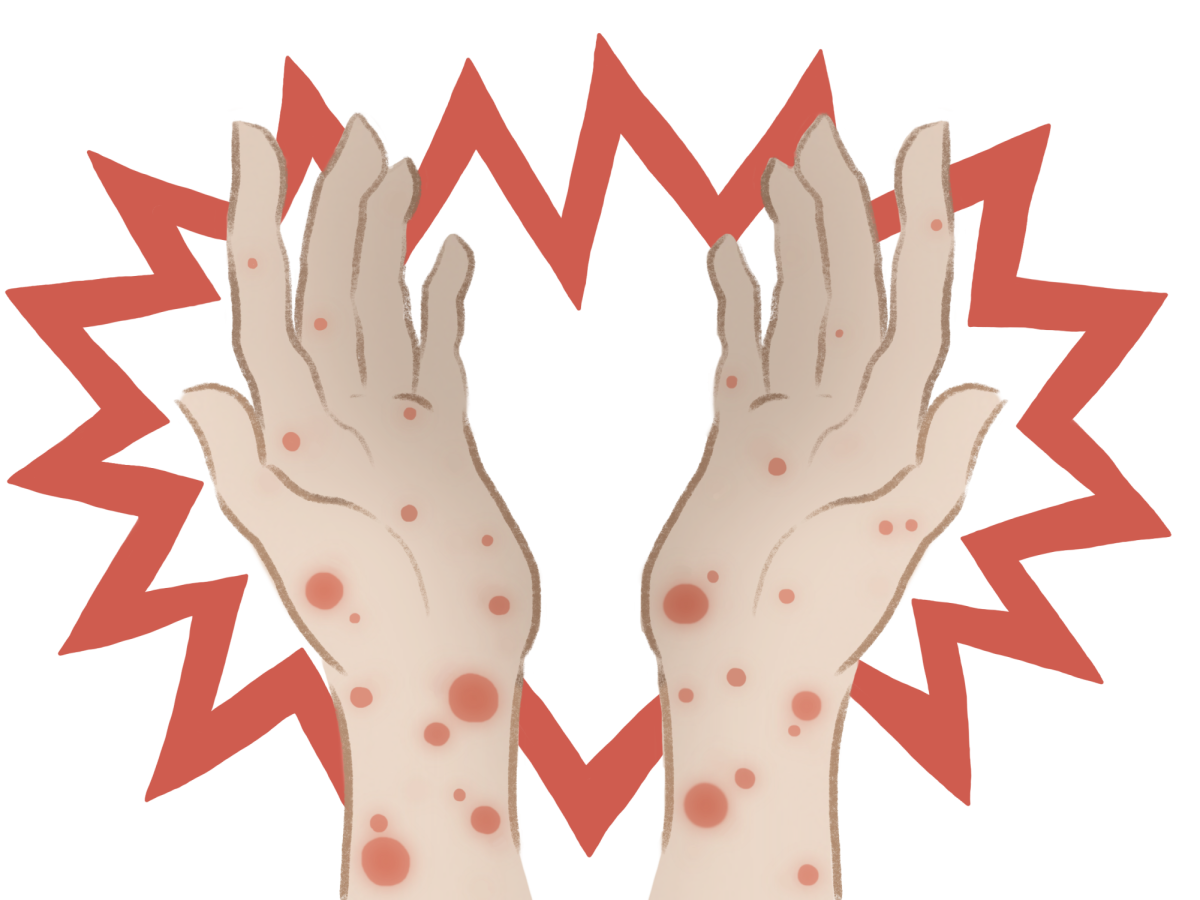A mere four years ago, COVID-19 swept through the world, and now, a new virus seems to be taking its place. Monkeypox is causing worry among citizens and scientists alike, leading to the pressing question: “Could MPox be the next COVID?” While MPox may not be a worry to the western hemisphere now, it poses a major threat in Africa, where they don’t even have access to a vaccine.
As of Aug. 14, the World Health Organization has declared the virus a “public health emergency of international concern,” due to a recent upsurge in parts of Africa. Last year the amount of cases grew exponentially, and that number has already been exceeded by cases recorded this year so far. The number now stands at more than 15,600 cases and 537 deaths in 2024.
Symptoms of the virus include rashes, sore throat, fever, headache, muscle ache, low energy, and more. Some people start with symptoms similar to COVID or influenza, but the rash is the easiest indicator of the virus.
One of the things that makes MPox dangerous is how easily it spreads. Close contact can be all it takes for it to infect, as well as sharing any contaminated items – sheets, clothes, etc., and intercourse. The virus can also be contracted from being scratched and bit by or eating an infected animal.
MPox comes in two different clades, or groups of organisms with a common ancestor, clade 1 and clade 2. Clade 2 caused the global outbreak in 2022 and 2023, and clade 1 is the virus currently spreading. It is the cause for the declaration of global health emergency. Both clades are dangerous, but clade 1 is considered more threatening.
MPox is a deadly virus spreading quickly through Africa, and while it is a threat, it’s unlikely that it will impact the United State in the way COVID did. Part of this is due to lack of any direct flights to the infected regions.
In addition, a vaccine has already been developed and is considered to be highly effective against both clades. This vaccine is currently available in the United States, but not in the most affected areas.
However, there is still much more to learn about the virus and its danger. It is very much a menace in other countries, with Africa facing the brunt of the virus. Monkeypox is dangerous, and it has affected the lives of many. As the virus proliferates, it becomes clear that a vaccine must become available across the world to stop the suffering of affected countries.







